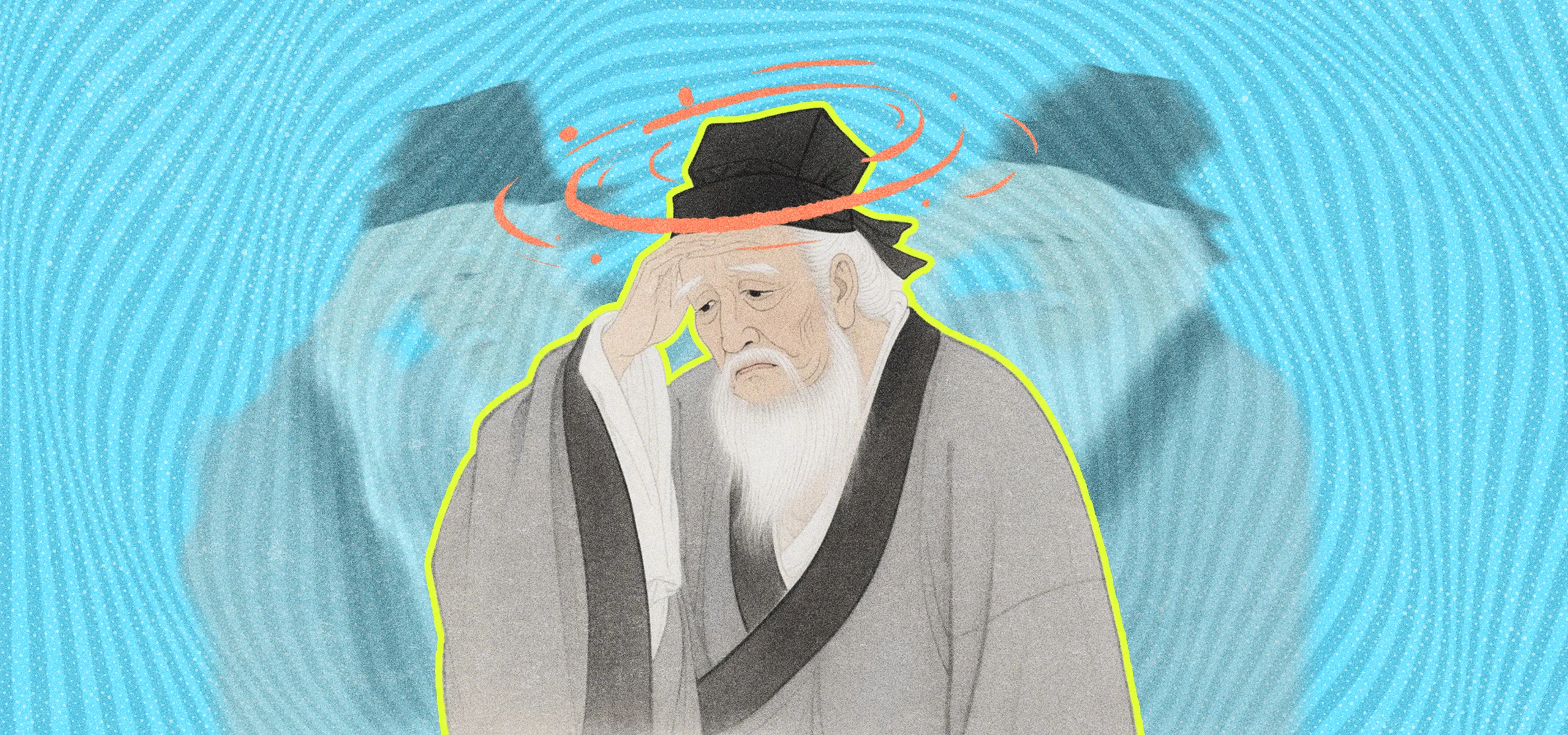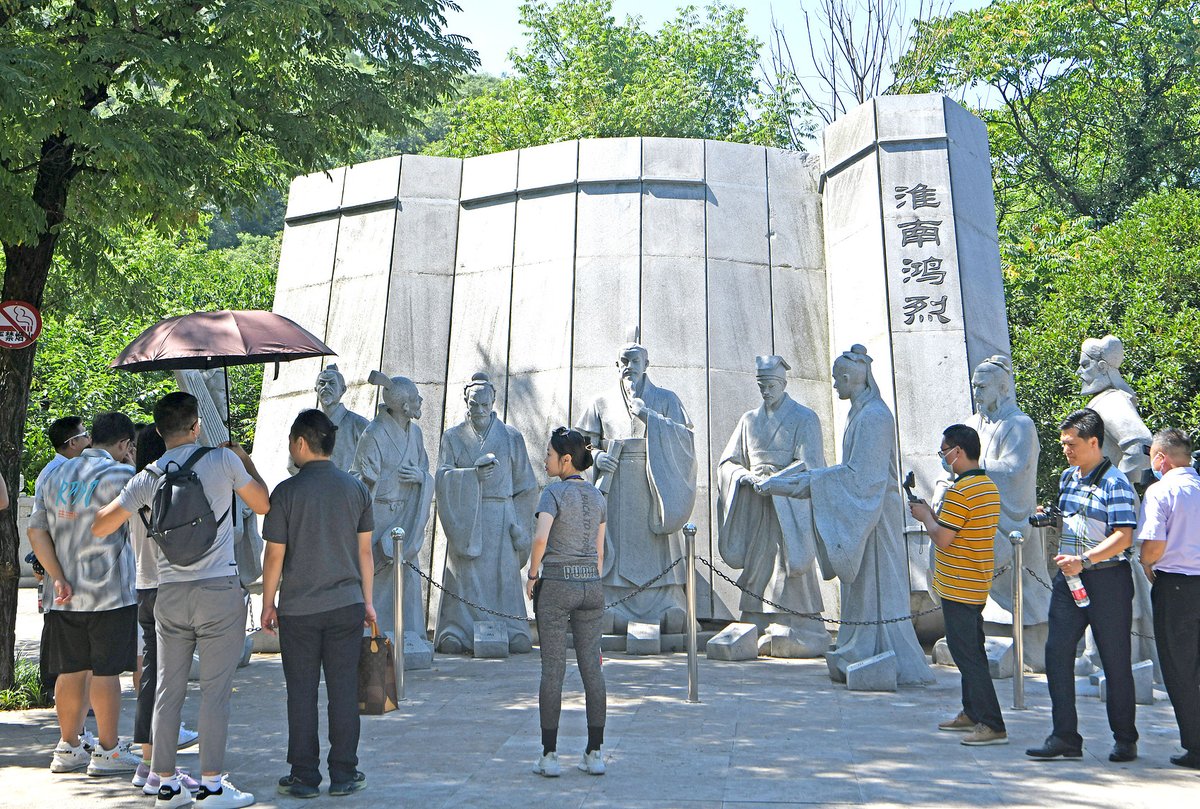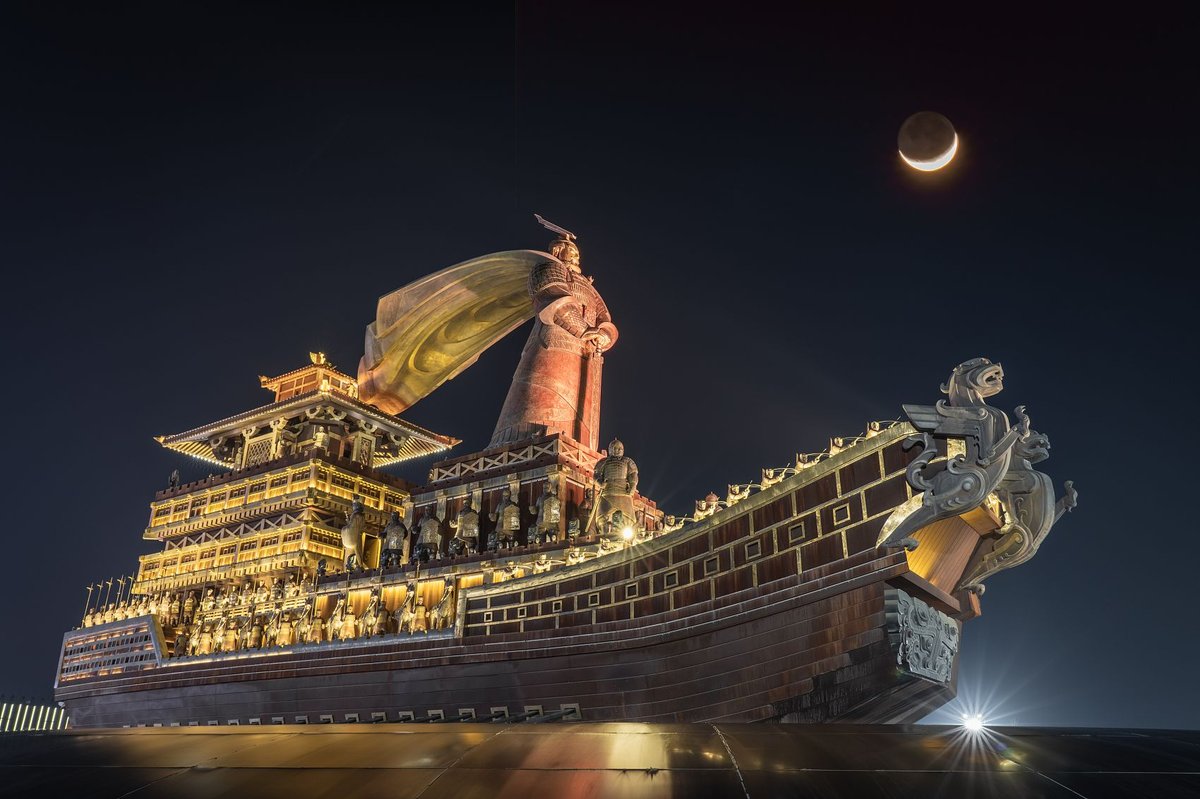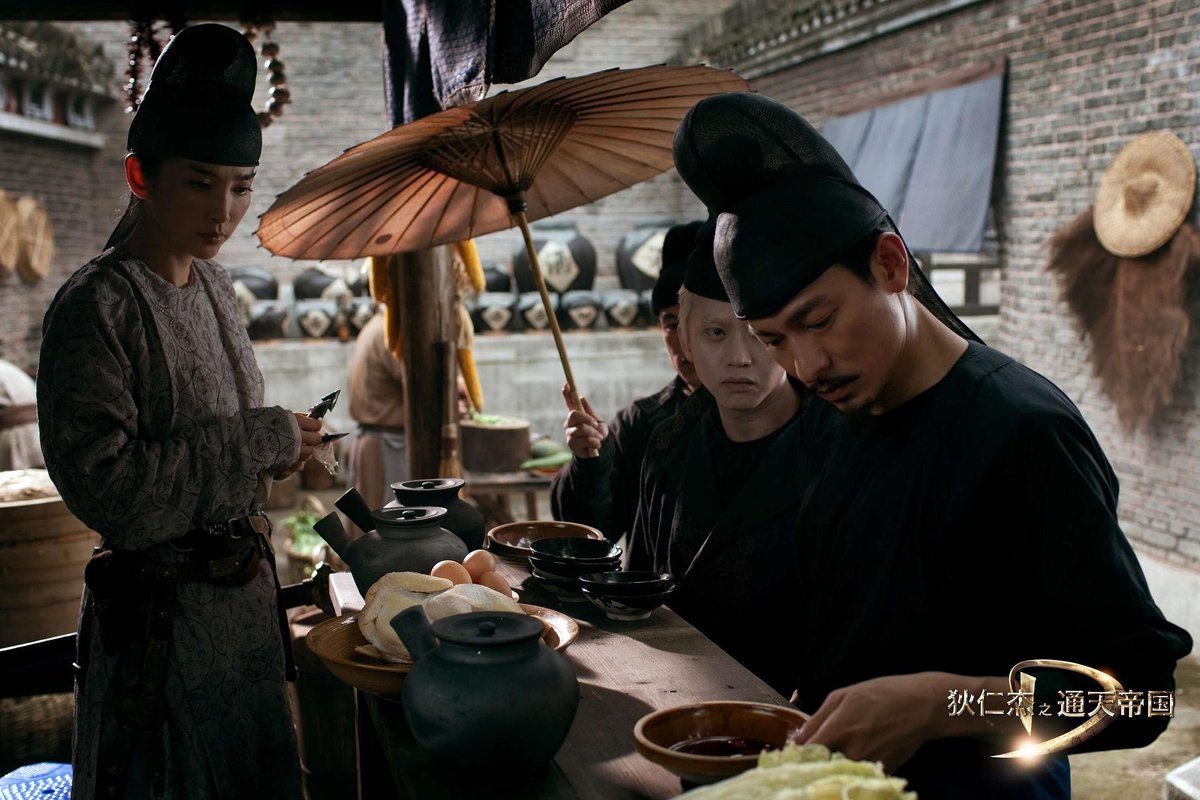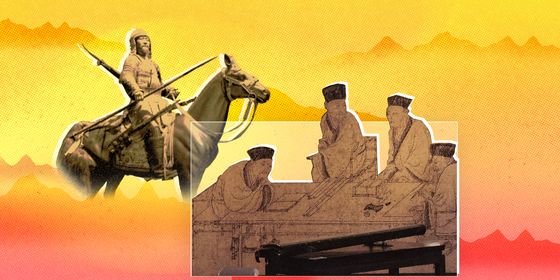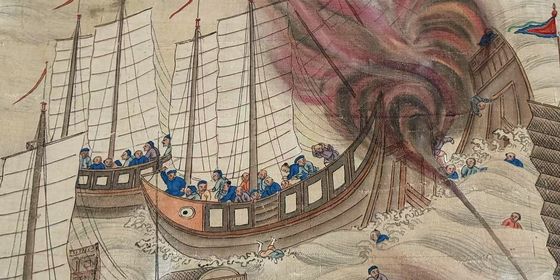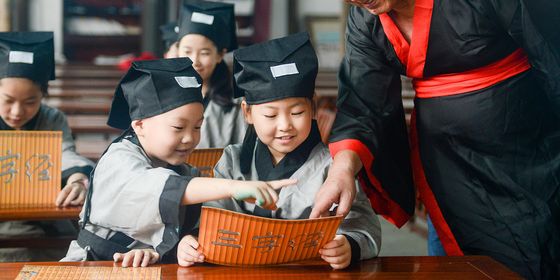Through greed, betrayal, or simple mischance, these ancient sons and daughters brought ruin upon their own fathers, officials, princes, and emperors alike
Posting a selfie before attending high school prom might seem like a harmless act. But for teenage actress Huang Yangtiantian, it ignited nationwide intrigue among China’s ever-watchful netizens. In the photo, she appeared to be wearing a pair of emerald and diamond earrings reportedly worth over 2 million yuan. Far from being an A-list celebrity, Huang quickly drew public scrutiny, not for her fame, but for her family background. Online sleuths soon identified her father as a former civil servant in Ya’an, Sichuan, fueling widespread speculation about potential corruption.
Though an initial investigation by Ya’an authorities found no evidence of Huang’s father accepting bribes, he was accused of running a private business during his tenure, among other violations. Huang’s father remains under further investigation, and local prosecutors have vowed to hold him accountable.
The scandal has not only sparked heated debates about privilege, corruption, and the parenting of entitled offspring but also brought the term kengdie (坑爹), which means “father-destroying,” back to the spotlight. Popularized in the early 2010s, this internet slang originally referred to children whose misconduct ends up embarrassing or implicating their parents. Over time, it evolved into a broader expression for situations that feel absurd, unfair, or exasperating.
Being screwed over by one’s children is hardly a modern phenomenon. Ancient China saw numerous cases of parents who faced dire, sometimes even fatal, consequences because of their “father-destroying” offspring.
A son’s funeral gifts bury a war hero
Zhou Yafu (周亚夫) was a military general of the Western Han dynasty (206 BCE – 25 CE) who served the empire with distinction, repelling invasions by the northern Xiongnu tribes and crushing rebellions. He was later appointed chancellor, the highest-ranking administrative official in the empire. Just as he was looking forward to a peaceful retirement, his well-meaning but reckless son brought about his downfall.
According to the Records of the Grand Historian (《史记》), in 143 BCE, Zhou Yafu’s son, whose name was not recorded, secretly purchased 500 sets of state-manufactured armor and shields intended for his father’s future burial. Such early preparations were not uncommon at the time.
Read more fascinating stories from ancient China:
- How Prophecies Were Key to Maintaining Power in Ancient China
- Ancient Snitches: How China’s Emperors Encouraged Informants
- Elixirs of Power: Chinese Emperors’ Quest for Immortality
No doubt believing his father deserved these funerary objects due to Zhou’s high military achievements, the son nonetheless broke the law: Armors and shields were strictly prohibited for private possession according to the law of Han. So, when someone reported it as treason, Zhou Yafu was swiftly arrested. Refusing to play guilty, he protested in prison by going on a hunger strike, and died soon after.
Although it wasn’t entirely his son’s fault, Zhou Yafu had already been entangled in political struggles that had strained his relationship with the emperor. The accusation of treason was merely a convenient excuse to remove him—and unfortunately, his son’s reckless actions provided exactly that.
A neglected son ousts his rebel father
Around this time in history, another powerful figure was undone by his son (and grandson)—this time, a prince. Liu An (刘安), the grandson of the Han dynasty’s founding emperor, had long harbored ambitions for the throne, watching it pass down his uncle’s line to his second cousin. To be fair, Liu An might have made a capable emperor himself, given how well he governed his feudal land of Huainan (now central Anhui province).
Liu An was renowned for his intellect. He eagerly sought out talented individuals and treated scholars with great respect, turning his court into a hub of vibrant intellectual exchange. From the debates held there, he compiled and published the Huainanzi (《淮南子》), a wide-ranging compendium of philosophy, politics, and science that became a cornerstone of Chinese thought. He is also credited, perhaps apocryphally, with the invention of tofu, and was among the earliest known individuals to experiment with hot air balloon flight.
However, to his son, Liu Buhai (刘不害), born of a disfavored concubine, Liu An was a complete failure as a father. Liu Buhai was ignored and disrespected in the family, and didn’t even get the noble title that he deserved. According to the Records of the Grand Historian, Liu Buhai had a very ambitious son named Liu Jian (刘建). Hoping his father would inherit his grandfather’s title, Liu Jian reported to the emperor that Liu An was plotting a rebellion, likely with Liu Buhai’s support.
Consequently, with no other choice, Liu An, unprepared and pressed for time, launched his rebellion in haste. The outcome was predictable: he failed to gain the support of his subordinates, and the scheme quickly unraveled. In the end, Liu An took his own life out of fear of punishment. But the emperor’s wrath extended to Liu An’s entire family, who were all executed. Though not explicitly recorded in historical texts, Liu Buhai and Liu Jian likely met the same fate.
A son’s corruption ignites a dynasty’s witch hunt
A few decades later, near the end of the Western Han dynasty, another chancellor, Gongsun He (公孙贺), met a fate similar to that of Zhou Yafu, also brought about by his son. Married to the empress’s sister, Gongsun He was an accomplished general who once captured a Xiongnu king. But such a prominent background didn’t save him from being destroyed by the actions of his corrupted son, Gongsun Jingsheng (公孙敬声), in the process setting off a witchcraft scare that resulted in tens of thousands of deaths.
Like his father, Gongsun Jinsheng held a high position at court. Unlike his father, however, he lacked a sense of responsibility and was brazen enough to embezzle 19 million coins in military funds. After his son was reported and arrested, Gongsun He attempted to save him by capturing a high-profile fugitive named Zhu Anshi (朱安世), hoping this act might atone for his son’s crimes.
Little was recorded about Zhu or the specific crimes he had committed, aside from the fact that he was a strongman in the capital. However, it quickly became clear that Zhu had ties to powerful officials and nobles with a political interest in creating chaos. Gongsun He soon realized he had opened a Pandora’s box.
According to the Comprehensive Mirror in Aid of Governance (《资治通鉴》), an 11th-century historical text, after Zhu was apprehended, he laughed and declared, “The chancellor’s misfortunes shall reach his entire clan!” In prison, Zhu accused Gongsun Jingsheng of having an affair with the emperor’s daughter and claimed that they had used wooden figurines to curse the emperor. Given the emperor’s advanced age and deep belief in witchcraft, he ordered an investigation, which ultimately validated the accusations. Both Gongsun He and his son died in prison.
But the witchcraft scandal was far from over. Realizing how effective such accusations could be, concubines and ministers close to the emperor began to exploit them for personal and political gain. The situation escalated to the point where even the crown prince and the empress were implicated, both ultimately taking their own lives. The hysteria soon spread across the country, as officials and commoners alike made accusations, resulting in the execution of tens of thousands. Known as the “Witchcraft Calamity,” the incident shook the very foundations of the empire and is regarded by many scholars as a pivotal turning point, ushering in the decline of the Western Han dynasty.
A son’s graft topples his father’s shrine
We move forward a few centuries to Di Renjie (狄仁杰), a chancellor of the Tang dynasty (618 –907). Renowned as a fair judge and later a fearless advisor to Empress Wu Zetian (武则天), Di also left a lasting mark on popular culture. Novels about him solving intriguing cases gained popularity in the 18th century. In the 1940s, Dutch diplomat Robert van Gulik translated these tales into English and wrote original stories featuring Judge Dee. Even today, Di continues to be portrayed in numerous movies and TV shows.
However, few know that his otherwise illustrious reputation was once tarnished by his own son. According to the Old Book of Tang (《旧唐书》), when Di Renjie served as the prefect of Wei prefecture, his outstanding governance inspired the locals to build a temple in his honor while he was still alive, an extraordinary gesture of respect at the time.
When Di was later transferred, his son, Di Jinghui (狄景晖), arrived in the prefecture to take up an official post. Unlike his father, Di Jinghui was greedy and oppressive. Where Di Renjie had refused bribes, his son extorted taxes; where the father pardoned the poor, the son imprisoned dissenters. As resentment grew, they not only despised Di Jinghui but also destroyed the shrine honoring his father. It wasn’t until more than a century later that the temple was rebuilt by a local official. The incident remains the only blemish on Di Renjie’s otherwise exemplary political legacy.
A princess’ ambition poisons an emperor
Daughters, too, could become a source of trouble for their fathers. Emperor Zhongzong of the Tang dynasty, Li Xian (李显), had a beloved daughter known as Princess Anle. She was born during Li Xian’s exile by his mother, Empress Wu Zetian, a period during which the family no doubt endured significant hardship. So when her father was restored to the throne, Princess Anle began to overcompensate by abusing her privilege.
According to the Old Book of Tang, Princess Anle commissioned lavish palaces for her own pleasure, meddled in state affairs, and sold official posts for personal gain. She even aspired to follow in her grandmother’s footsteps and become an empress regnant. When her request to be named crown princess was denied by her father, she conspired with her mother to poison the emperor. But their triumph was short-lived. Less than a month later, the emperor’s nephew led the imperial guards into the palace, executed both the empress and the princess, and seized the throne.
Throughout history, the dastardly acts of children, whether they trigger an unplanned rebellion, a deadly witchcraft scare, or an investigation by the authorities, have seemed to be a constant. While this may be of little consolation to the ruined father, it is also a reminder to everyone to watch closely the actions of their children. As the ancient primer Three Character Classic (《三字经》) warns: “To raise a child without teaching him is the father’s fault.”





